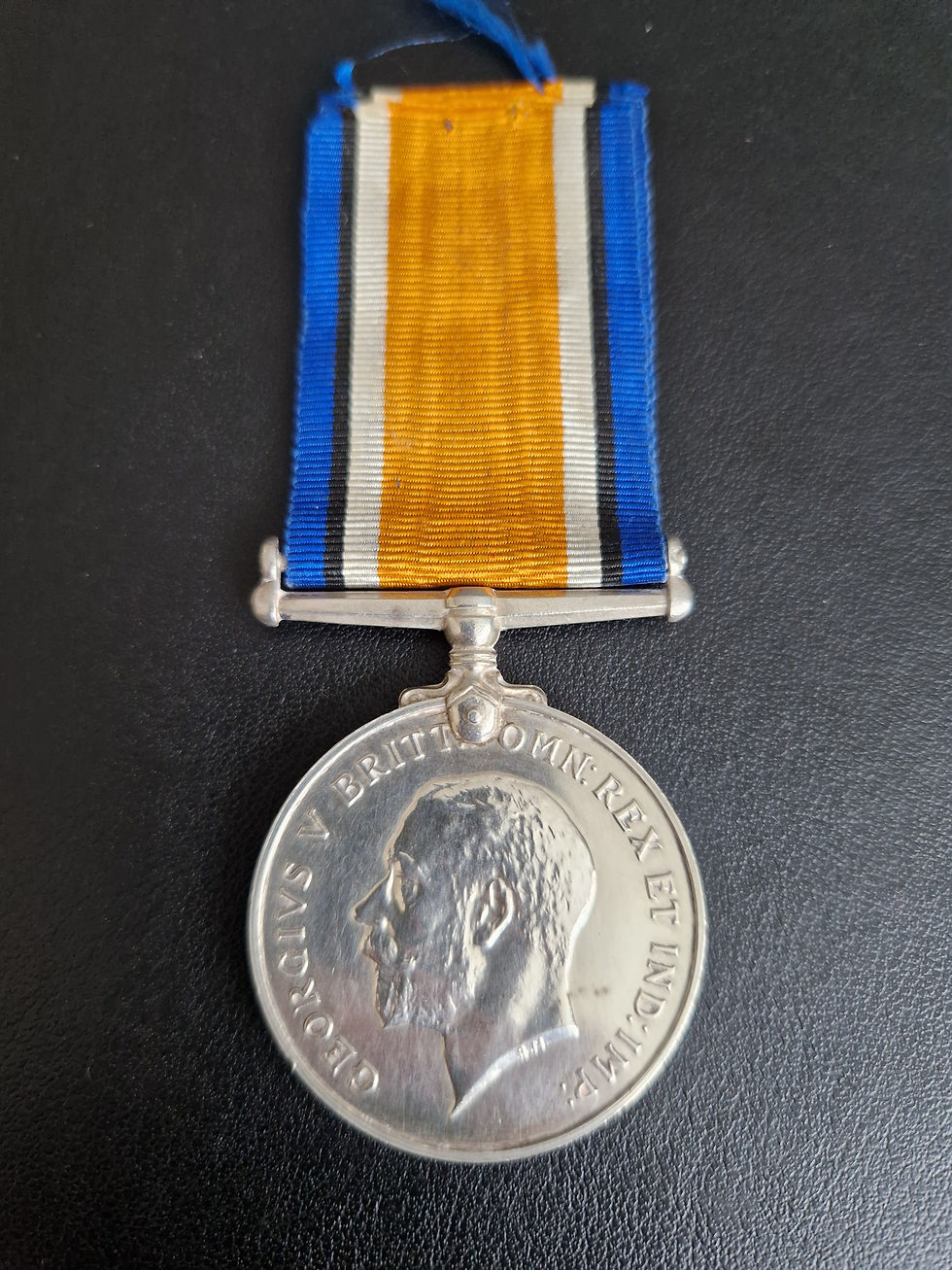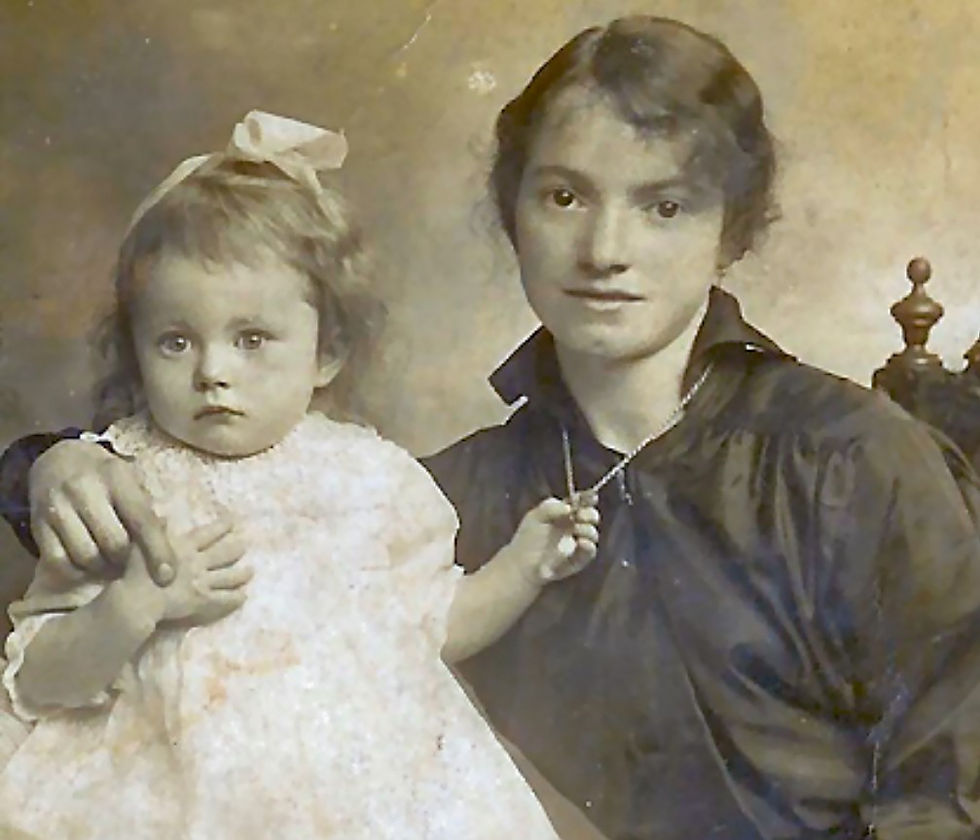Harry's biscuit
- Claire Jordan
- May 9, 2024
- 5 min read
At the end of summer 1900, a note appeared in the Register of South Holmwood School near Dorking.
“September 3rd: John Upward and Harry Upward, very neglected children & extremely irregular [in attendance] have been removed to the Dorking Workhouse.”
A month later, the Dorking & Leatherhead Advertiser carried a report on a recent case at the Petty Sessions court.
“Gross Neglect of Children: Jeremiah and Emily Upward, living on the Holmwood, were charged with neglecting and ill-treating their two children, John and Harry Upward, 11 and 8 years of age respectively, in a manner likely to cause them unnecessary suffering and injury to health.”
After concerns had been raised, a relieving officer of the NSPCC (founded 15 years earlier) had been sent to the Upward’s house on 29th August where the mother, Emily, initially tried to bar his entry.
When he finally got inside, he found “the two boys… extremely filthy and their bodies… grimed with dirt… covered with vermin and their clothing… dirty, ragged and insufficient.”
The state of the house was equally squalid, and upstairs, he found no bedding whatsoever; the mother tried to excuse this by saying that they were being fined for not sending the boys for school and when the authorities had threatened to sell their furniture to satisfy the fines, she had simply disposed of the furniture before they could get to it.
It was reported that the mother Emily was addicted to drink and that she and her husband blamed each other for the shameful neglect of their youngest children.
The elder boy John was found to have “imperfect” mental facilities, exacerbated by the conditions in which he and his little brother Harry were forced to survive.
The court considered this to be a disgraceful case; the father was fined, the mother sent to jail for a month and the boys were removed, first to the workhouse and then on to new homes.
John was sent eventually to the Western Counties Asylum in Devon, a ‘Training Institution for the Feeble Minded’, where he would sadly spend the rest of his long life.
For Harry, though, aged 8, this was the beginning of bigger and better things.
He was sent to live at St Michael’s Orphanage on the edge of Chislehurst Common, south-east London, run by the Waifs & Strays Society.
There he was at last cared for appropriately, fed and clothed with an actual bed to sleep on, and his education resumed. In time, he was trained for working life as a domestic gardener and by 17, the Society had found him a position as a live-in gardener for the Reverend Charles Box and his family, back in Dorking.
Despite his parents’ best efforts, he was taking possession of the one decent legacy they had bequeathed him: his surname Upward.
The following year began the next of Harry’s big adventures. On a sunny day in May 1912 aged now 18, he boarded the RMS Virginian bound for Quebec as part of the British Home Children scheme, which between about 1870 and WW2 sent thousands of disadvantaged youngsters to Canada for (the dream at least was) a chance of a better life.
Technically, Harry was too old to be classed as a Home Child, but the scheme allowed for him to emigrate as a young adult and would help provide him on arrival with opportunities for lodging and for work.
When the First World War came, he was all the way across the Atlantic but by the spring of 1916, he could no longer ignore what he felt to be his duty and rather than joining the Canadian Expeditionary Force (which would perhaps have been the easier option), he paid his own passage back to England in order to volunteer for service with the British Army.
What must he have felt, steaming back across the Atlantic… His father Jeremiah had died the year before, although their mother was still alive, just about; would he try to see her? His eldest brother drank himself to death years before but he was still in touch with his married older sister Elizabeth, whose own husband had been killed in action in 1914, leaving her with five small children.
On 28th April 1916, Harry enlisted at Guildford into the Royal West Kent Regiment, putting sister Elizabeth down as his next-of-kin, and climbing back onto a ship on 13th September, this time bound for the French Channel coast and the Western Front beyond it, where his new posting, 6th Battalion, was waiting for him.
After eight months at the front, the last of them spent fighting the deadly Battle of Arras, on 3rd May 1917, at 2.30am, Harry and his mates moved up into support positions for an attack on the strongly-defended enemy position known as the Brown Line.
A week earlier, a year to the day after he’d enlisted, he’d been punished for “eating biscuit portion of iron ration”; these were emergency supplies carried by each man, not supposed to be touched without the express permission of an Officer or NCO.
Perhaps he’d wanted to mark a year in uniform. Or perhaps, just at that precise moment, he’d had enough.
His punishment of four days on jankers had hardly run out when, at 3.45am on 3rd May, the attacking waves in front of Harry went over the top. They were cut down by heavy machine gunfire and the attack failed.
Harry – crouching in the support trench with his Battalion, heart hammering - could hear the relentless spitting of the enemy machine guns and the screams of the men into which they were thudding.
At any moment, they expected to be ordered up to follow them.
Finally the decision was made and for now, Harry’s 6th Royal West Kents were stood down.
That is, until the late afternoon, when orders were received for the Battalion to capture the Brown Line which this morning had been murderously impossible.
They were to go over the top at 9.45pm under cover of the spring night.
This was it, then.
He’d had no sleep. Everything Harry had endured, the times he’d waited fearfully to see if his mother would get home drunk or not at all, every loss and every little victory, the girls who’d smiled at him, the gardens he’d tended and the plants he’d cherished, the life he’d carved out for himself in Canada, even the punishment he’d taken for eating his emergency biscuit the week before, had brought him to this moment.
Now he would have to find the courage to attack the same objective that had seen hundreds of men cut down that same morning.
Their watches ticked down and the whistles blew.
“The attack was unsuccessful,” says the war diary, “being beaten back by intense machine gun fire from both flanks and from the front. Casualties: 12 Officers & 250 Other Ranks.”
And Harry disappeared forever.
A few weeks later, Elizabeth received a letter from the surviving NCOs and men of Harry’s platoon, expressing their deep sympathy at his loss and saying that he was looked up to by all of them as a good soldier.
Harry’s body was never recovered and he is remembered on the Arras Memorial.
He didn’t have to come back from Canada to enlist; he could have stayed safely across the Atlantic.
But though there are millions like it, this British War Medal, engraved with his name around the rim, shines with his strength of character in surviving all that he did without losing himself, and his enormous courage when it mattered most.
His medal has now found its way to me, and I will treasure it always.
Maybe we could all eat a biscuit or two in honour of Harry on 3rd May: his anniversary.







Comments